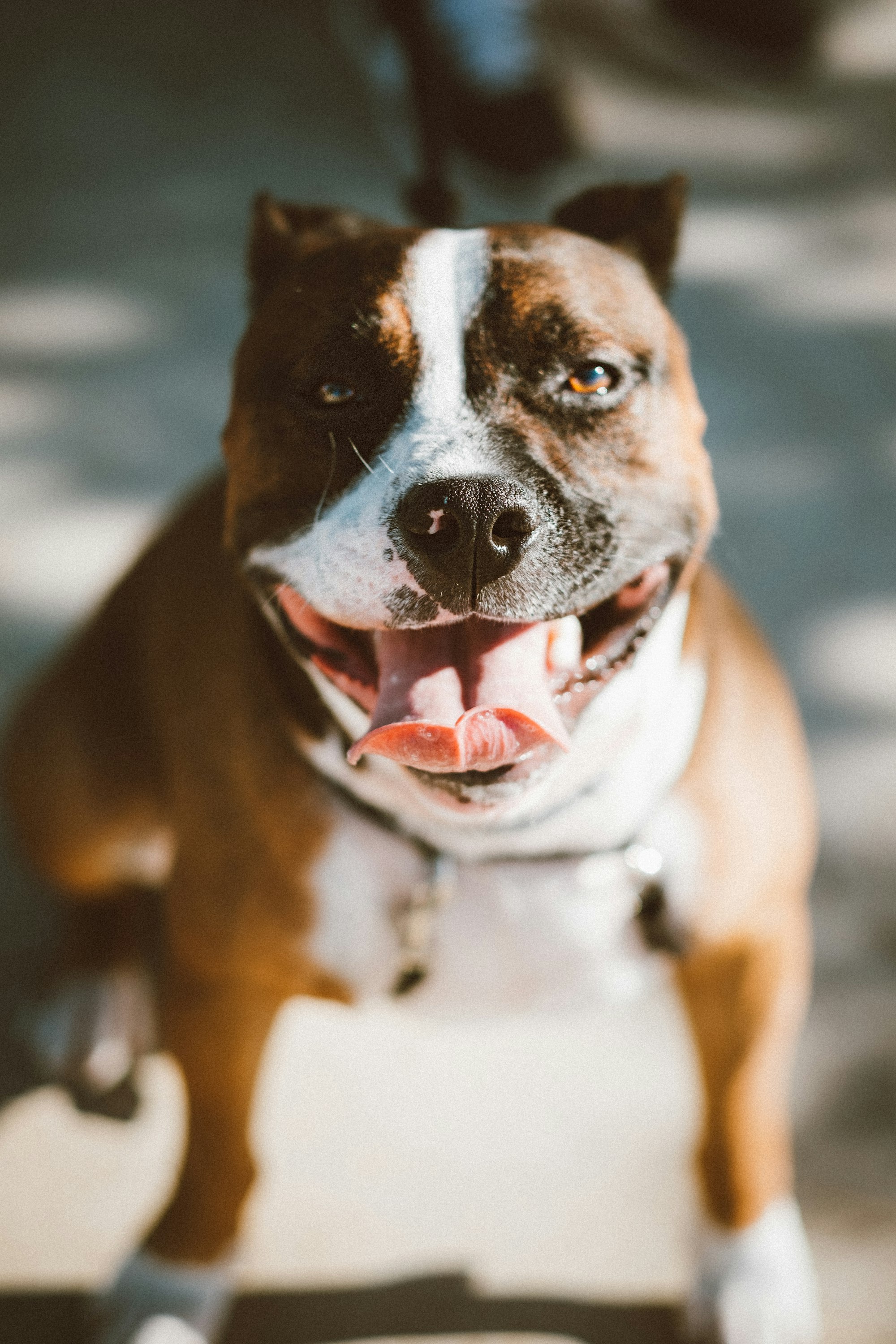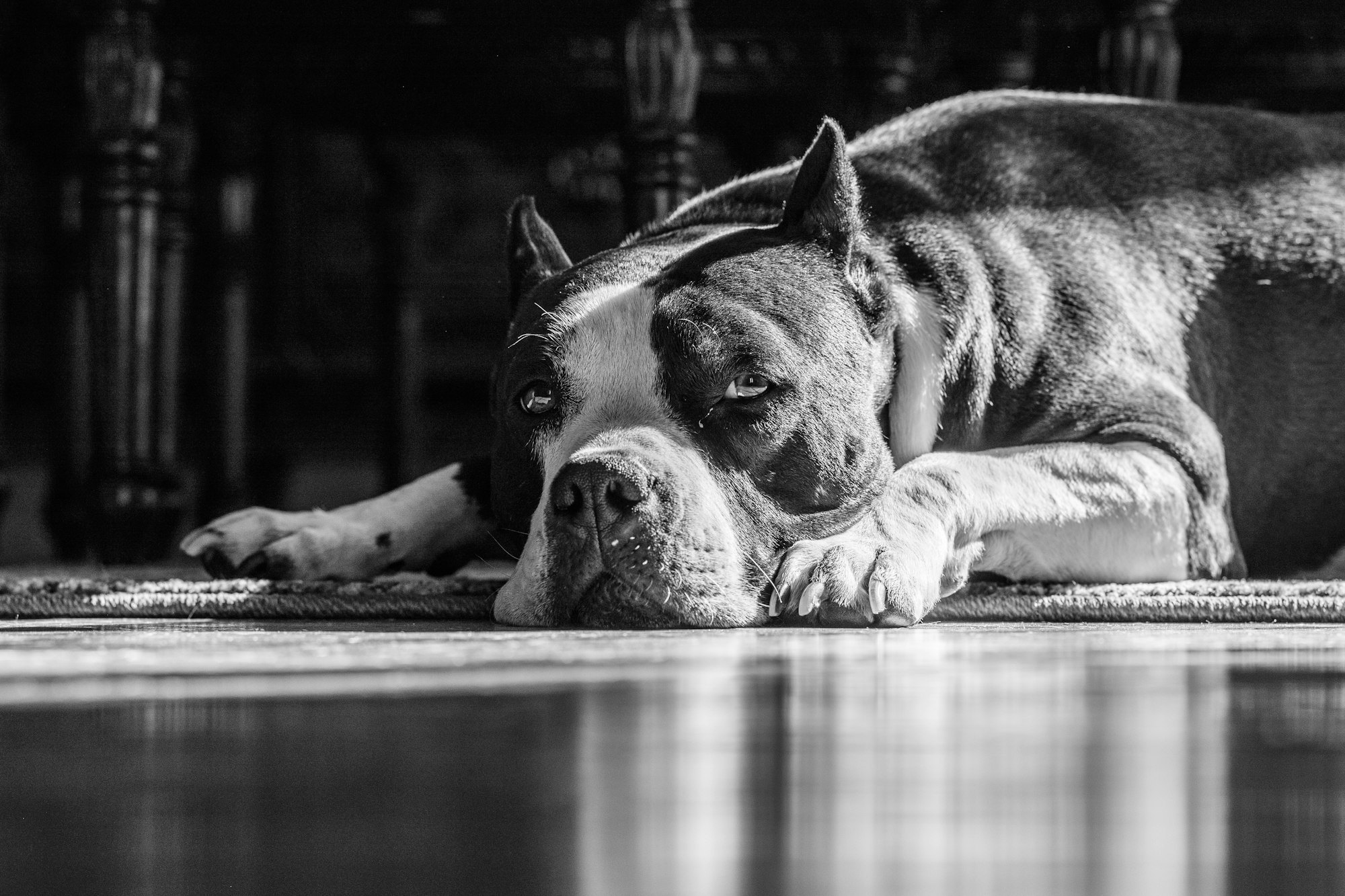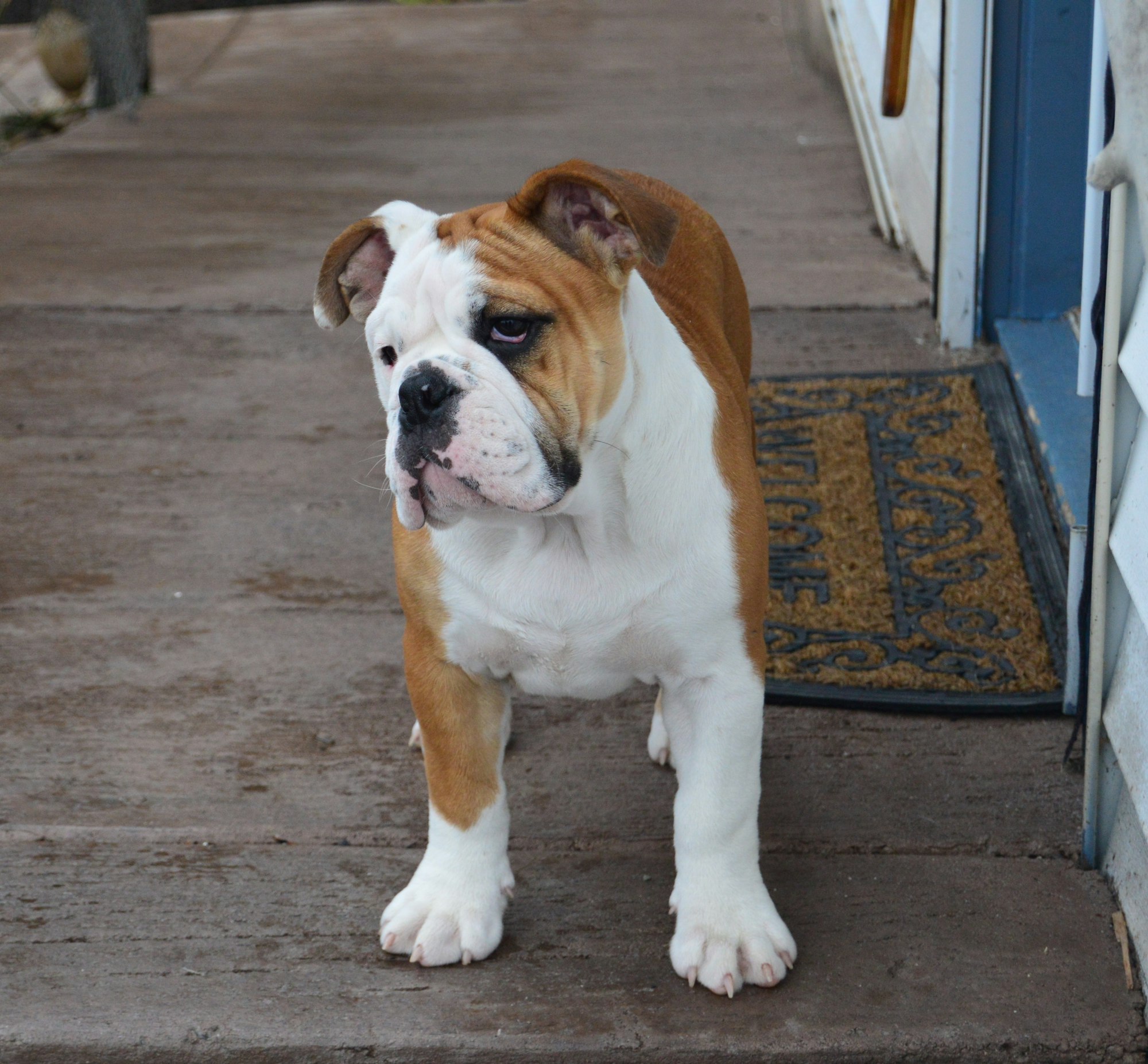American Bulldogs are known for their muscular build and strong-willed nature. However, the question of whether they are inherently aggressive is a topic of debate among dog enthusiasts. In this article, we will explore the various factors that contribute to an American Bulldog's temperament and shed light on the truth behind their alleged aggression.

Understanding American Bulldog Temperament
American Bulldogs, like any other breed, have a range of temperaments that can vary from individual to individual. While some may exhibit aggressive tendencies, the majority are gentle and affectionate when properly trained and socialized.
The temperament of an American Bulldog is influenced by various factors, including genetics, early socialization, and training. It is essential to note that genetics alone do not determine a dog's behavior. Environment, handling, and socialization play a crucial role in shaping their temperament.
Early socialization is key in ensuring that American Bulldogs grow up to be well-rounded and well-behaved. Introducing them to different people, animals, and environments from a young age helps them become more comfortable and confident in various situations. Positive experiences during this critical period can greatly reduce the chances of aggression later in life.

Training methods also play a significant role in shaping an American Bulldog's temperament. Positive reinforcement techniques, such as reward-based training, are highly effective in teaching them appropriate behavior. Harsh training methods or punishment can result in fear and separation anxiety, which may manifest as aggression.
Factors That Contribute to Aggression in American Bulldogs
While American Bulldogs are not inherently aggressive, certain factors can contribute to aggressive behavior in some individuals. It is important to be aware of these factors to prevent or address aggression effectively.
Lack of proper socialization is one of the leading causes of aggression in American Bulldogs. Without exposure to different people, animals, and environments, they may become fearful or reactive when faced with unfamiliar situations. This fear can escalate into aggression if not addressed early on.
Additionally, a lack of training or inadequate training methods can lead to behavioral issues, including aggression. American Bulldogs are intelligent dogs that require mental stimulation and clear boundaries. Without proper training, they may become frustrated or confused, which can manifest as aggression.
Lastly, genetic predisposition can also play a role in an American Bulldog's potential for aggression. While genetics are not the sole determining factor, certain bloodlines may carry traits that make them more prone to aggressive behavior. Responsible breeders carefully select breeding pairs to minimize the risk of passing on such traits.
Misconceptions About American Bulldog Aggression
American Bulldogs have often been portrayed as aggressive dogs in popular culture and media. However, it is crucial to separate fact from fiction and dispel the misconceptions surrounding their aggression.
One common misconception is that all American Bulldogs are aggressive. As mentioned earlier, aggression is not inherent to the breed. With proper socialization, agility training, and responsible ownership, American Bulldogs can be loving, gentle, and well-behaved family pets.
Another misconception is that American Bulldogs are inherently dangerous or unsuitable for families with children. In reality, American Bulldogs can be excellent family dogs when raised in a loving and structured environment. Like any other breed, they require appropriate training and supervision around children to ensure everyone's safety.
How to Prevent Aggression in American Bulldogs
Preventing aggression in American Bulldogs starts with responsible ownership and proper care. Here are some essential steps to take to reduce the likelihood of aggression:
- Early socialization: Introduce your American Bulldog to various people, animals, and environments from an early age. Gradually expose them to different situations to help them build positive associations and confidence.
- Positive reinforcement training: Use reward-based training methods to teach your American Bulldog good manners and appropriate behavior. Consistency, patience, and positive reinforcement will yield the best results.
- Establish clear boundaries: Set consistent rules and boundaries for your American Bulldog. This helps them understand what is expected of them and reduces confusion or frustration that can lead to aggression.
- Provide mental and physical stimulation: American Bulldogs are active dogs that require both mental and physical exercise. Engage them in activities such as obedience training, puzzle toys, and regular exercise to prevent boredom and frustration.
Training and Socialization for American Bulldogs
Training and socialization are crucial aspects of raising a well-behaved and non-aggressive American Bulldog. Here are some tips to ensure success in these areas:
- Start early: Begin training and socializing your American Bulldog as soon as you bring them home. The earlier you start, the easier it will be to shape their behavior and prevent potential issues.
- Enroll in obedience classes: Professional obedience classes provide structured training and socialization opportunities for your American Bulldog. Trainers can guide you in using positive reinforcement techniques effectively.
- Expose them to various environments: Take your American Bulldog to different places, such as dog parks, pet-friendly stores, and friends' homes. This helps them become comfortable and well-adjusted in different settings.
- Introduce them to different people and animals: Expose your American Bulldog to a wide range of people, including children, adults, and other dogs. Supervise all interactions to ensure positive experiences.
Recognizing Signs of Aggression in American Bulldogs

It is important to be able to recognize the early signs of aggression in American Bulldogs to address the issue promptly. Some common indicators of aggression include:
- Growling or snarling: American Bulldogs may vocalize their discomfort through growling or snarling when feeling threatened or anxious.
- Stiff body language: A tense and rigid body posture, raised hackles, and a fixed stare can indicate that an American Bulldog is feeling defensive or aggressive.
- Biting or snapping: Aggression can escalate to biting or snapping as a defensive or offensive response. This behavior should be addressed immediately to prevent further incidents.
If you notice any signs of aggression in your American Bulldog, it is essential to seek professional help to address the issue effectively.
Managing and Addressing Aggression in American Bulldogs
Managing aggression in American Bulldogs requires a multifaceted approach that addresses the underlying causes and modifies their behavior. Here are some steps to consider:
- Consult a professional: Seek guidance from a professional dog trainer or behaviorist experienced in working with aggressive dogs. They can assess the situation and provide a tailored plan to address your American Bulldog's aggression.
- Implement behavior modification techniques: Behavior modification techniques, such as desensitization and counterconditioning, can help change your American Bulldog's response to triggers that provoke aggression.
- Create a safe environment: Ensure that your American Bulldog cannot harm themselves or others during episodes of aggression. Implement management strategies, such as using a muzzle or providing a secure space when visitors come over.
- Follow professional advice: Consistency and adherence to the professional's recommendations are essential for successfully managing aggression in American Bulldogs. Be patient and committed to the training process.
Seeking Professional Help for Aggressive American Bulldogs
Dealing with aggression in American Bulldogs can be challenging, and seeking professional help is often necessary. A professional dog trainer or behaviorist can provide the expertise and guidance required to address the issue effectively. They will assess your American Bulldog's behavior, develop a customized behavior modification plan, and support you throughout the process.
Remember, it is crucial to address aggression in American Bulldogs promptly to ensure the safety of everyone involved and to improve their overall quality of life.
American Bulldogs and Families
A. Interaction with Children:
Exploring how American Bulldogs typically interact with children in a family setting. Highlighting their gentle nature and the potential for forming strong bonds with younger family members. Emphasizing the importance of supervision and proper introduction.
B. Establishing a Bond with the Family:
Delving into the ways American Bulldogs integrate into the family dynamic. From their loyalty to their protective instincts, understanding how these qualities contribute to a harmonious relationship. Tips on fostering a strong bond and ensuring the well-being of both the dog and the family.
Responsible Ownership
A. Commitment Required:
Underlining the commitment necessary when considering an American Bulldog as a family pet. Discussing the time, effort, and resources required to provide a loving and stable environment. Stressing the lifelong commitment involved in caring for an American Bulldog.
B. Providing Proper Care and Environment:
Guidance on meeting the specific needs of an American Bulldog to ensure a healthy and happy life within a family context. Discussing dietary requirements, exercise routines, and creating a safe living space. Tips for maintaining the overall well-being of the dog and promoting a positive owner-pet relationship.

Success Stories
A. Positive Experiences with American Bulldogs:
Discovering heartwarming anecdotes from owners who have experienced the joy and companionship of American Bulldogs. These stories showcase the breed's loyalty, gentleness, and positive impact on families.
B. Examples of Well-Behaved American Bulldogs:
Exploring instances where American Bulldogs have proven to be exemplary companions. From being excellent with children to forming deep bonds with their owners, these stories highlight the breed's positive contributions to family life.
In this section, we delve into real-life accounts that celebrate the delightful qualities of American Bulldogs, showcasing their affectionate nature and debunking stereotypes. These success stories contribute to fostering a more accurate and positive perception of this beloved breed.
Conclusion and Final Thoughts
Are American Bulldogs aggressive? The answer is not a simple yes or no. While some American Bulldogs may display aggressive tendencies, the majority can be loving, gentle, and well-behaved family pets when properly trained, socialized, and cared for.
Understanding the factors that contribute to aggression in American Bulldogs and taking preventive measures can significantly reduce the likelihood of unwanted behavior. Early socialization, positive reinforcement training, and responsible ownership are key to raising a well-rounded American Bulldog.
If you find yourself dealing with an aggressive American Bulldog, seeking professional help is crucial. A trained professional can assess the situation, provide a behavior modification plan, and guide you through the process of managing and addressing aggression effectively.
Remember, every dog is an individual, and their behavior is influenced by a combination of genetics, environment, and training. With love, patience, and proper care, American Bulldogs can thrive as loyal and affectionate companions.
FAQs
Here are a few frequently asked questions about American Bulldogs' aggressive behavior. In this last section, we'll explore frequently asked questions surrounding the topic, providing clarity and dispelling myths.

Q: Are American Bulldogs inherently aggressive?
A: No, American Bulldogs are not inherently aggressive. Like any breed, their behavior is influenced by genetics, upbringing, and training.
Q: How can I socialize my American Bulldog?
A: Early and positive socialization with various environments, people, and other animals is key. Gradual exposure helps in building a well-adjusted dog.
Q: What signs indicate that my American Bulldog is aggressive?
A: Aggressive signs include growling, barking, snarling, and a tense body posture. Consulting a professional for behavioral evaluation is recommended.
Q: Can training modify aggressive behavior in American Bulldogs?
A: Yes, consistent and positive reinforcement training can effectively modify aggressive behavior in American Bulldogs.
Q: What is the lifespan of an American Bulldog?
A: The average lifespan of an American Bulldog is around 10 to 16 years, depending on factors like genetics, health care, and lifestyle.
Q: Are American Bulldogs suitable for families with children?
A: Yes, with proper training and supervision, American Bulldogs can be excellent family pets and are known for their affectionate nature.
Q: How can I ensure responsible ownership of an American Bulldog?
A: Responsible ownership involves commitment, proper care, regular veterinary check-ups, and meeting the emotional and physical needs of the dog.
Q: Do American Bulldogs require special care?
A: They require regular exercise, a balanced diet, and routine veterinary care. Additionally, attention to dental health is crucial.
Q: Are there any specific laws regarding American Bulldogs?
A: Laws may vary by location. It's important to be aware of any breed-specific legislation or local regulations regarding American Bulldogs.
Q: Where can I find success stories about well-behaved American Bulldogs?
A: Online forums, breed clubs, and community groups often share positive experiences and success stories about well-behaved American Bulldogs.




